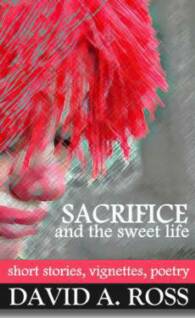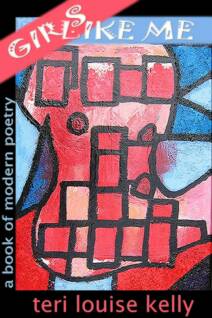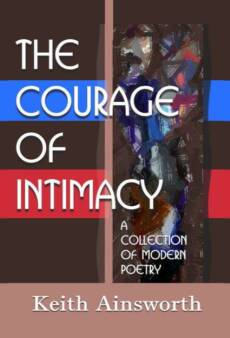©Moronic Ox Literary Journal - Escape Media Publishers / Open Books
Poetry
Moronic Ox Literary and Cultural Journal - Escape Media Publishers / Open Books Advertise your book, CD, or cause in the 'Ox'
Novel Excerpts, Short Stories, Poetry, Multimedia, Current Affairs, Book Reviews, Photo Essays, Visual Arts Submissions
FUNAKOSHI AND THE TENGU
Okinawa, 1909
Meiji Period
Dedication: 'To Mr. Oshima, founder of SKA.'
Santiago del Dardano Turann
Stone steps rose up towards the orange sunset
That lay beneath her purple mosquito net
Of early twilight while her golden ribbons
Were scattered over storm clouds of obsidian.
The rough worn steps curled up a grassy hillside
With little left to show from ancient pride
As they were sprinkled with small round white flowers
That grew out from their many holes and fissures.
A single man in early middle-age
His thoughts absorbed in teachings of the sage
Confucius, whom he taught to local students,
And lesson plans walked up the stony pavement.
His name was Funakoshi Gichin, he
Was thirteen years out from when destiny
Would call on him to travel to Japan
And bring out to the world the Okinawan
Karate style, of which he was a master,
And take his place among its greatest teachers.
On one side lush and full bloom bougainvillea
Unfolded in a silken carpet of fuchsia
That stretched up to the ruins of a wall
Near where a fukugi palm tree, thick and tall,
With broad sword leaves still stood on guard behind
A broken window against invading wind.
The fluffy white breast Yellow Throated Bunting
In high light peeps held court, negotiating
With Daurian Redstarts on the ground below.
The steps reached to a doorway where hung low
Wisteria streams of blooming pink and white
That on a breeze toyed with the newborn twilight.
The other side already clung to night
With prolix twisted ghostly gajumaru
In sheets before the dark green akatetsu
And licking languid leaves of low crape-myrtle
Infested with the clicks of emerald beetles.
The snaking getto shrubs in mangy patches
Laid snares across the steps while great wood arches
Of banyan had dissolved what was a wall
When kings had ruled, but now flies and an owl
Alone ruled there. A woodcock shuffled by
The door when out of nowhere from the sky
A hawk attacked and left the brown bird bleeding
To crawl off while he joined eight others circling
Above. “Ten-thousand forms of danger wait,”
Funakoshi said, “outside one’s gate.”
Reflecting on this he walked to a pine
Grove sparkling with the phosphorescent shine
Of fireflies in long dancing elegant columns
That moved to tunes the crickets, low and solemn,
Were playing in the sleepy humid air.
Then suddenly around him everywhere
It seemed as if a curtain had been dropped
And with it all the sounds and lights were chopped
Off leaving the whole pine grove locked in black.
He stopped and sensed intention to attack.
He heard the clanging rings of a shakujo
Staff thrusting forwards toward him, dropping low
Into a back-stance he swung out his left arm
With open hand to block it with his forearm
Then shifting stepped out on his right foot, swung
His right fist up to block, his left fist sprung
Out penetrating a form like wet sand
Dissolving only once more to expand
Reconstituted to a gawkish figure
That threw a kick. His left hand on his shoulder
And right palm up above the thigh he caught
The kick and ripping threw back the onslaught
While landing on the figure with his left fist
A blow that sent him rolling. “What an artist!”
A shriveled voice mocked joined by twisted laughs.
“Azato, your old teacher, fought us better in half
The movements. Clearly your mind’s still trapped in
Technique. This won’t allow the ki to begin
To integrate completely.”
“Who are you?”
Funakoshi demanded. “We are tengu.
We heard about you from a passing habu
Snake who told us of your fearsome glance
That drove him back. We though we’d take this chance
To test you.”
“Right!” another said, “and though
Your horse-stance can resist a typhoon’s blow
You’ll find that we’re an even greater power!
Prepare yourself! For here your life’s in danger!”
The darkness rolled back and he saw the goblins
Sketched in charcoal shadows of the maudlin
Tall pines, their wrinkled faces and long noses
Looked down on him like they would quelquechoses
That skulk in silence on the forest bed.
Some had a human form on others the head
Was human but their body was a hawk’s.
One spread his wings and with a piercing squawk
Dove down at Funakoshi to attack.
Rotating, his left arm rose in an arc
Before his forehead to deflect while he
Snapped up his right and a high kick that swiftly
Impacted with a shock into the tengu
With force exploding it in mist of ecru
Just as another rushed towards his right
Side crumbling into dust from his kick’s might.
“It seems you can adjust to your opponent,”
The largest tengu growled, “your form is fluent
But still you can not beat a creature who’s
A spirit!”
“My concern is not to lose,
To win is not a thought within my mind.”
The tengu said appearing from behind,
“A single thought means that your mind’s not free
Thus there is no way that you’ll ever beat me!”
He spun around, his hands formed in a v-shape
And caught the tengu on his neck’s thick nape
With force that drove him back, he then flew
With two sharp bolting kicks into the tengu
Who tumbled backwards. Streams of red dust flashed
Out from the folds of his black court dress splashed
Across the ground in waves that turned to dead leaves
That scattered on the humid evening breeze.
He stood there for a moment with the sound
Of normal night till he heard from the background.
“Your ki is like a heavenly white tiger
That growls amid the dark clouds of the thunder.
You beat us well, indeed, you are a master.”
He did not answer and the voice was lost
In echoes through the branches of the forest.

Santiago del Dardano Turann
About the author: Santiago del Dardano Turann was born in April of 1968 in Cincinnati, Ohio, and grew-up in rural Butler county. He does not have a college degree and has worked blue collar or retail jobs his whole life. He only began to write poetry with the onset of middle age.
Just Published
Available Now!
From life before birth,
through parents, courtship, love, marriage,
and unhappiness,
May-Waldman manages to catch the unevenness of life while singing its songs.





